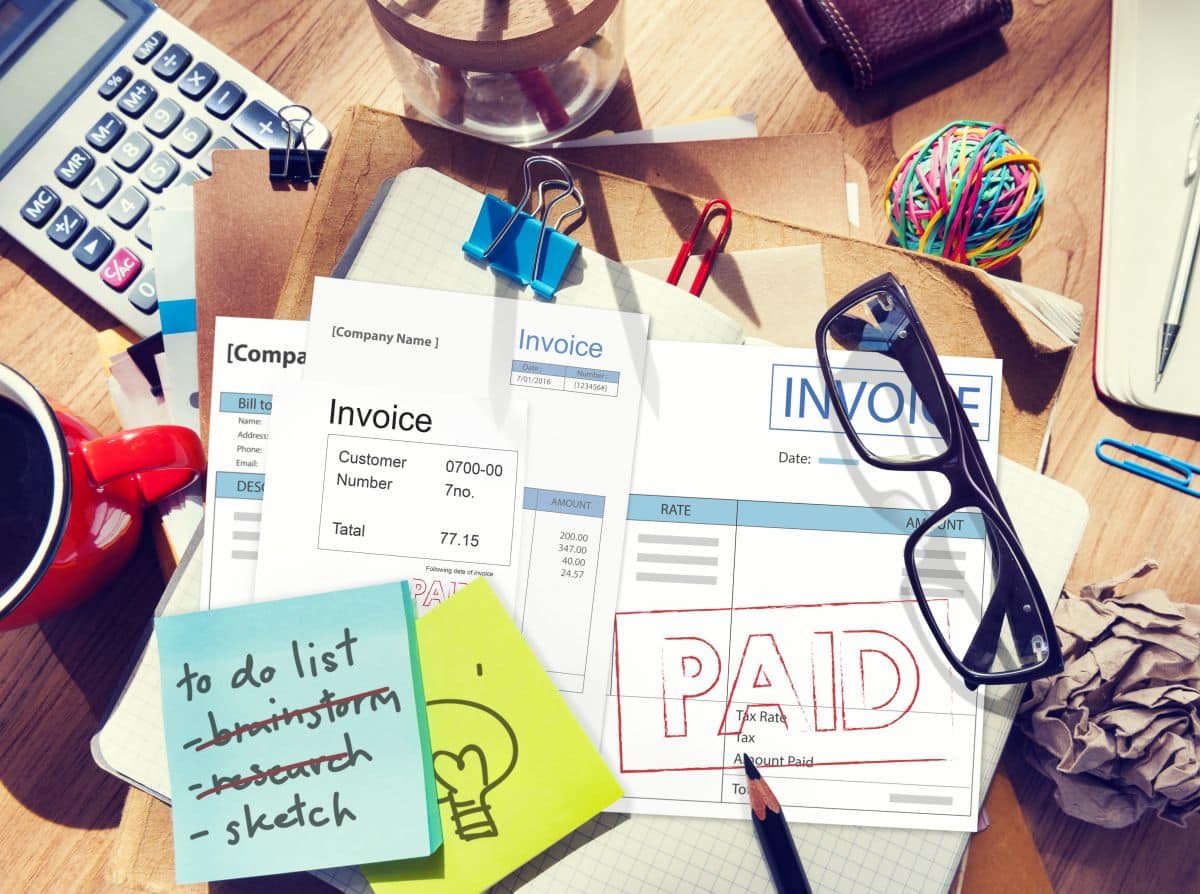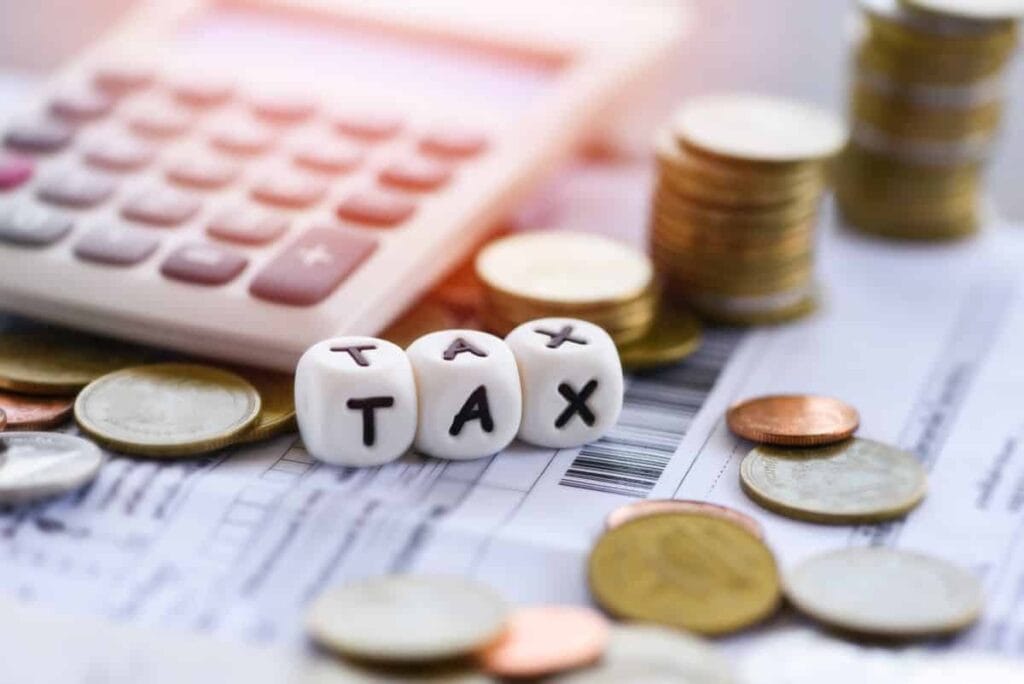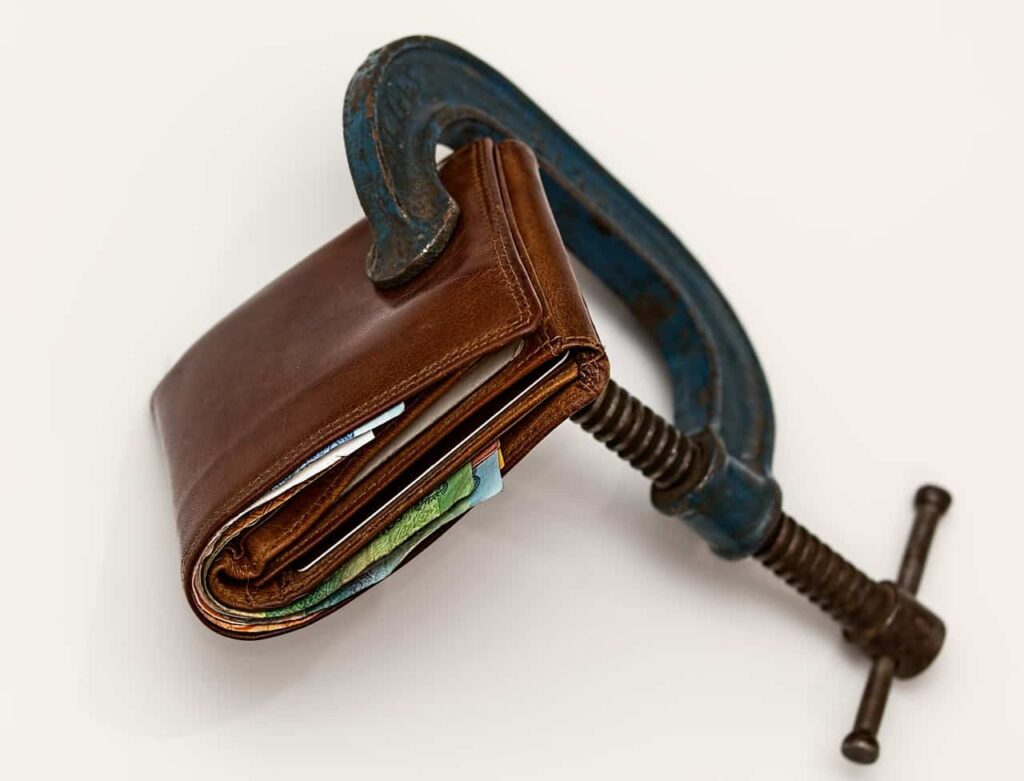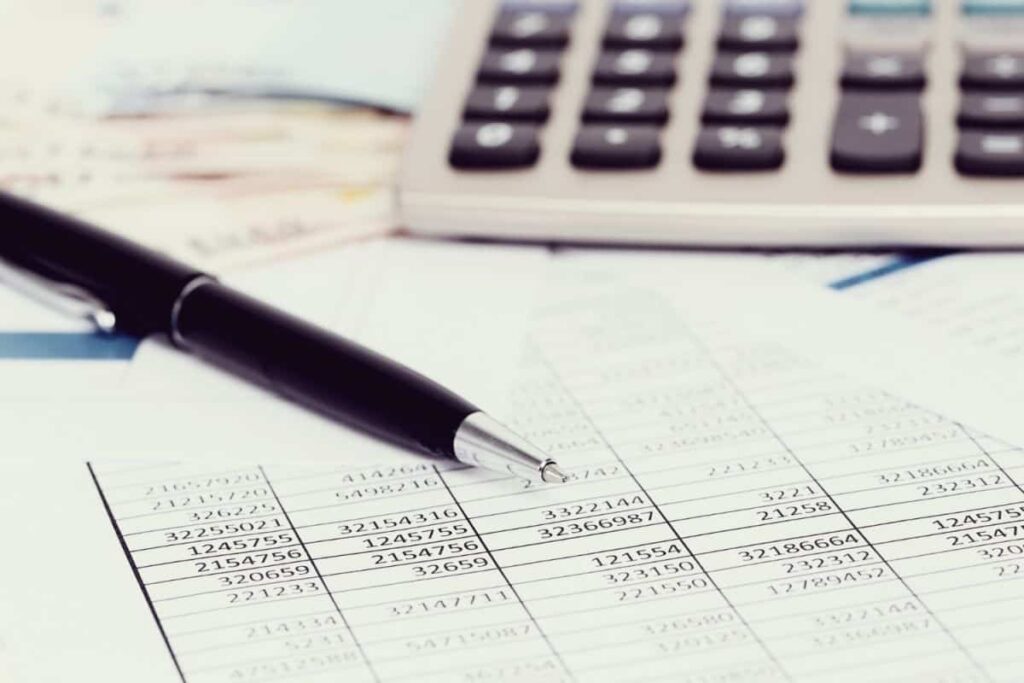If you are an investor in Australian real estate, there are a few tax guidelines that you have to be aware of in order to get the most out of your investment. In this article, we will provide you with an outline of the most essential factors that you should keep in mind when it comes to taxes and investing in real estate. Continue reading if you are eager to get started with your education.
It is vital to make sure that you take advantage of all of the tax benefits that are available to you if you are going to invest in real estate as it may be an excellent method to safeguard your financial future. Here are some suggestions for lowering the amount of income and capital gains tax that you owe as a result of your investments in real estate: Remember these things as you think about making your next purchase!
It is imperative that you remain current on all of the most recent tax advice and developments if you are one of the numerous people in Australia who own property for the purpose of investment. In this article, we will go over some of the most important details that you need to be aware of in order to maintain compliance with the Tax Office and get the most out of your real estate investments. Continue reading this article to learn everything you require information on about tax deductions, depreciation, and more!
It is essential that you have a solid understanding of how your investments will affect your tax situation. In this blog post, we will go over some tax advice that is relevant to investors in real estate in Australia. We are going to present an overview of the primary taxes that you need to be aware of, and we are also going to offer some advice on how to minimize the amount of money that you owe in taxes. Continue reading this article if you are interested in learning more about the taxation of property investments in Australia.
Are you someone who invests in real estate? Are you aware of the tax requirements that you have? If not, there's no need to worry because this post on the blog is for you! In it, we will provide some pointers on how to keep track of your taxes and avoid any unpleasant surprises when it comes time to file your taxes. It doesn't matter if you're just getting started in the world of real estate investment or if you've been doing it for a while; if you're interested in learning some useful advice, keep reading!
Putting money into real estate is one of the best ways to amass wealth and ensure a comfortable financial future for oneself. It is crucial to understand the tax ramifications and how they will affect you if you are going to invest in property in Australia. If you are considering doing so, you should do so. This blog post offers some tax advice for anybody interested in investing in real estate in Australia. We discuss other topics as well, such as depreciation and the capital gains tax (CGT).
Property investors in Australia should be aware of a few tax guidelines that are relevant to their situation. To begin, you have the ability to take a deduction against your taxable income for any costs that are directly related to the investment property you own. This includes the interest that you pay on your house loan, the fees that your real estate agent charges, and the upkeep expenditures.
Depreciation is another expense that you are able to claim for your property's assets (e.g. the building itself and any furniture or appliances included in it). However, there are some limitations placed on the kind of expenses that can be claimed; therefore, it is imperative that you become familiar with these limitations before submitting any claims. Consult with your accountant for guidance if you are unsure whether or not a particular expense qualifies as tax-deductible. You can minimize the amount of tax that you owe if you take advantage of the tax deductions that are available to you.
It is imperative that you stay on top of your tax obligations if you are investing in real estate. The following are some suggestions that will assist you in getting started. First and foremost, you need to be sure that you keep detailed records of both your income and your expenditures. This will make preparing your tax return a lot less difficult.
You might also be able to write off some of your costs, such as the interest on your mortgage, the taxes on your property, and the depreciation on your investment. However, it is imperative that you get the advice of a tax expert in order to determine whether deductions are available to you. Last but not least, keep in mind that the rules and regulations governing taxes can shift from one year to the next, so make sure you're always up to date on the most recent changes.
It is essential to maintain a level of familiarity with the most recent tax advice and modifications. This article will provide an overview of the present taxation structure that applies to real estate investors in Australia, as well as some suggestions to assist you to lower the amount of income that is subject to taxation. Make sure to keep reading if you want to obtain information that is helpful, regardless of whether you are a novice or an experienced investor.
Thanks for reading!
Should I Report the Income from My Rental Property?
When you file your tax return, you are required to inform the Australian Taxation Office (ATO) of the total amount of income you earned from rent and other rental-related sources during the previous fiscal year.
Some examples of rental-related income are as follows:
- Refunds of rental deposits (for example, in the event that your tenant did not pay the rent or caused damage to your property);
- payouts from insurance policies (for instance, when you receive money to compensate you for harm done to your property);
- Rental and reservation payments that were paid to you;
- Any sum that a tenant pays to offset the expenses of making repairs to the property.
On the website of the ATO, you will discover further information regarding the rental income that you are required to report.
Rental Properties
The Australian Taxation Office (ATO) places a consistent emphasis on verifying rental deductions and comparing information provided about income to that obtained from real estate brokers, Stayz, Airbnb, and other service providers.
If you own multiple rental properties, you are required to submit a multi-property rental schedule along with your individual tax filings.
Be certain that claims for interest expenditure are accurately computed, that rental income is fairly distributed among owners, that claims for costs to repair damage and defects that existed at the time of purchase are discounted, and that vacation homes are indeed available for rent.
Property owners who have rental units that are either now being rented or are prepared and offered for rent are eligible to make claims for immediate tax deductions for a variety of expenses. The interest on investment loans, land tax, council and water rates, body corporate charges, repairs and upkeep, and commissions paid to agents are some examples of these types of costs.
Depreciation is a tax write-off that can be claimed by landlords to compensate for the value loss of equipment including stoves, carpets, and hot-water systems. They may also be eligible to take a deduction for capital works that are stretched out over a number of years, such as the remodelling of a bathroom or other types of structural upgrades.
Be advised that in recent years, deductions for depreciation of residential real estate properties have been constrained to only include expenditures made on brand-new things. Landlords are unable to depreciate assets that were already present in the property at the time it was purchased after May 9, 2017; however, they are able to depreciate the same asset if they purchase a new (and not used or refurbished) asset. This change applies to properties that were acquired after May 9, 2017.
Deductions for travel expenses incurred by residential landlords in connection with the inspection, maintenance, or collection of rent for rental property have been eliminated.
Despite the fact that you can still claim deductions for your expenses and property's depreciation, you may be required to make modifications if you've altered the manner in which you utilize the property.
Property advisors are key in assessing the true value of real estate, ensuring fair transactions.
What Rental Expenses Can I Claim?
During the time that your property is rented or available for rent, you may be entitled to deduct a number of expenses from your taxable income.
These may include the following:
- Expenses related to management, such as fees and commissions paid to real estate agents;
- Land tax;
- Fees and deposits paid to the body corporate;
- Expenses related to upkeep, such as cleaning, gardening, and pest control, as well as maintenance and repairs;
- Expenses related to the interest on a property loan;
- insurance (including but not limited to building, contents, and public liability insurance);
- Some legal fees;
- Depreciation.
What Rental Expenses Can’t I Claim?
You can’t claim tax deductions on:
- Expenses someone else has paid (e.g. electricity bills paid by your tenant)
- Property purchase costs (e.g. stamp duty)
Residential Property and Non-residents
Assume for the purposes of taxation that you are a non-resident of Australia at the time that you sell your residential property in Australia. If this is the case, the CGT primary residence exemption will not be available to you unless you are able to demonstrate that certain life events have occurred.
No Deductions For Vacant Land
The amount of money that can be deducted for owning vacant land has been reduced. The new regulations apply to any charges that were incurred on or after the 1st of July 2019, regardless of when the land was actually possessed.
Corporate tax entities, superannuation plans (other than self-managed superannuation funds), managed investment trusts, public unit trusts, and unit trusts or partnerships where all the members are the entity types mentioned above are eligible to continue claiming deductions for expenses incurred for holding costs of vacant land.
There are some types of businesses and situations in which it is still possible to claim deductions for undeveloped land. For instance, in the event that the entity that owns the land is a corporation, if you utilize the land in the operation of a business, or if other extraordinary circumstances are present.
Property advisors offer expert advice on market trends, property valuation, and investment potential.

If the expenses of holding land are incurred in the carrying on of a business, such as farming, or in the acquiring or production of assessable revenue, then they continue to be deductible.
The rules can be difficult to understand, and you will need to decide whether or not you are the owner of vacant land, whether or not it satisfies the various standards, and whether or not there are special circumstances.
The Australian Taxation Office (ATO) has developed a flowchart to assist taxpayers in determining whether or not they are restricted in their ability to deduct expenses related to vacant land.
A skilled property advisor can guide you through the complexities of property acquisition and disposal
Capital Gains Tax Planning
Because selling an appreciating asset could result in a capital gain, you should choose the timing of the sale very carefully. It is essential to be aware that the capital gains tax is incurred not on the settlement of the transaction but rather when the contract to sell a CGT asset is entered into.
This is of utmost significance in situations in which the beginning of the contractual obligation and its completion span the close of the fiscal year. Under these conditions, it is possible that postponing the sale of the CGT asset until the next year, when other forms of relief, such as a capital loss from the sale of another asset, may be available, is the most prudent course of action from a cash flow point of view.
You should also make sure that an eligible asset is held onto for the full duration of the required holding period of 12 months in order to qualify for the CGT deduction. In most cases, individuals who are foreign residents or temporary residents in Canada are not eligible for the CGT reduction.
Maintain accurate records for all of your investments, and make it a point to retain those documents for at least five years following the occurrence of any event that triggers a capital gains tax liability.
Read the guidance on capital gains tax provided by the ATO.
What exactly does "negative gearing" mean?
If you are an investor in real estate or are considering becoming one, it is essential that you have a solid understanding of what negative gearing is as well as the potential rewards and hazards associated with it.
1. What exactly is meant by the terms "negative gearing" and "positive gearing"?
The term "gearing" refers to the practice of borrowing money for the purpose of making an investment, and it is most commonly discussed in the context of investment properties. Your rental revenue may be considered favourably or negatively geared, depending on how the property is being used.
- When your rental return (the amount of rent you receive from your renters) is higher than your interest repayments and other property-related expenses, a property is said to be favourably geared (e.g. strata levies, council and water rates).
- When your rental return on a property is lower than your interest repayments and other costs associated to the property, we say that the property is negatively geared.
2. Advantages of using a negative gearing system
The primary advantage of negative gearing is that it allows you to deduct losses from other sources of income, like as your salary, that you have incurred over the year as a result of your rental property.
Because of this, your taxable income and the amount of tax that you are required to pay will both go down.
3. Advantages of using positive gearing
The income that you get from a positively geared property can put more money in your pocket and help you feel more confident about making your loan repayments. If you are interested in learning more, check out our article on positively geared properties. Additionally, it might assist you in putting money away so that you can use it for other purposes.
4. Rental expenses you might claim as tax deductions
If your property is rented or is offered for rent, you may be entitled to deduct the interest component of your loan repayments as well as certain additional rental expenses from your taxable income under Australian tax rules.
5. When it comes to gearing, whether positive or negative, which approach is better for you?
As is the case with all investments, your approach ought to be tailored to your own circumstances and preferences about the level of risk. If you are thinking about investing or if you are already an investor in real estate, you should seriously consider having a conversation with a professional financial counsellor, accountant, or tax specialist.
Visit the website of the Australian Taxation Office (ATO) to learn more about the deductions and exemptions that you are eligible to claim for a rental property.
Tax Advice That Every Australian Real Estate Investor Ought To Be Aware Of During the Current Fiscal Year
Property investors in Australia are eligible for a variety of advantageous tax benefits. Because the ATO considers your investment to be a company, you are able to minimize the amount of income tax that you are required to pay by claiming deductions for the costs associated with your investment.
1. Always make sure to keep records of everything.
You will be required to provide documentation of your rental revenue and expenses. This encompasses everything from rental bond returns to insurance payouts as well as fees for letting and booking – basically anything that results in a profit.
Your taxable income will increase by the amount that you made from the sale of your investment property; accordingly, you should make sure that you keep all of your bank statements that indicate interest. At tax time, the level of anxiety you feel is directly proportional to the amount of proof you have stored away.
2. Set a realistic rental price
It is simple to be biased and assume that your investment property is worth the top rental dollar; alternatively, it is easy to take out a large mortgage and expect tenants to fund the monthly instalments in full. Both of these scenarios are risky.
However, it is your responsibility to determine a rental price that is both reasonable and fair for your home, taking into account the location, size, and competitive landscape of the local rental market. You could get into a lot of difficulty with the taxman if you intentionally establish an inflated rental fee or if you fail to publicize the property.
3. Determine exactly what you are eligible to claim and what you are not.
Claim as much as you possibly can, and make sure you don't overlook anything. That is Head of Leasing at Different Kasey McDonald's most important piece of investor tax advice.
"Everything from the more visible expenses, such as council taxes and landlord insurance, to the more hidden expenses, such as fees for the establishment of a loan. Property owners risk losing hundreds or even thousands of dollars on their tax returns if they fail to claim all of their allowable expenses."
Investors are eligible to deduct the cost of repairs and maintenance, as well as the interest charges and costs associated with loans, the cost of legal bills, and the value decrease of depreciable goods in the property, such as carpets, drapes, and dishwashers.
4. Make sure to keep track of everything.
According to Edge, "if you invest in a rental property or rent it out, you'll need to keep records right from the start so you can work out what expenses you can claim as deductions and ensure that you declare all of your rental-related income in your tax return." "If you invest in a rental property or rent it out, you'll need to keep records right from the start so you can work out what expenses you can claim as deductions and
You will need receipts in order to be able to claim any expenses that are associated with the products that you have purchased for the property.
"While your tax accountant will be aware of all the nitty-gritty details, your property manager also plays an important role during tax time and should be providing you with all the relevant documents you need for your property," said McDonald. "While your tax accountant will be aware of all the nitty-gritty details, your property manager also plays an important role during tax
A statement that is prepared at the end of the year should include information such as the total rental income for the year, the total fees paid to the management agency, and the out-of-pocket expenses such as the property's council rates, water, and maintenance work.

5. Finish any necessary property upkeep right away
Because we are getting closer and closer to the end of the fiscal year, any necessary maintenance work or repairs that you complete before June 30 are expenses that you can claim sooner. In that case, you won't be able to submit a claim for these expenses for another year.
6. Be sure to include all of your rental revenue, including any rental bonds you received.
Investors in real estate are required to report any and all profits made from their holdings to the appropriate authorities. And according to Edge, this does not only include rental income, but also any "rental bond money you become entitled to retain, for example, when a tenant fails on rent or you incur maintenance costs and insurance payouts in particular instances."
This might even include the rental or booking fees that you collect in the event that someone uses your property for a rental or booking.
7. The situation regarding "mates rates"
It is often simpler to keep personal and professional relationships separate. For instance, if you charge your roommates a particular discounted rate for rent, this may reduce the number of deductions you are eligible to claim.
Let's imagine you decide to rent the property to members of your own family at a rate that is fifty percent lower than the going market rate. You will need to cut your deductions in half.
If you fail to really rent out your investment property, fail to advertise it, and claim deductions that don't match up with your rental income, you will be subject to substantial penalties, surprise tax costs, and a place on the "naughty" list maintained by the ATO.
8. Be aware of the deductions you can make for your vacation home.
It is possible for a vacation rental property to be a profitable business, and who doesn't find the thought of owning a beach house appealing? (Summer Bay, anyone?)
However, despite the fact that you pay your mortgage on a fortnightly or monthly basis, the only time you are eligible for rental tax deductions is during the time that your home is listed as being offered for rent and during the time that it is actually rented out.
You are not eligible for a tax deduction for the time period during which your vacation home was utilized for personal or family vacations or for the time period during which you gave friends free use of the property. Remember that the ATO will require to see proof of income and the deductions that are related with it (for example, the costs of cleaning, maintenance, and advertising fees), so you shouldn't try to mislead the system.
9. Recouping the interest you've paid on your loan
One of the most significant advantages of investing in real estate is the opportunity to deduct the interest paid on a mortgage, or at least a portion of that interest, from your taxable income.
Therefore, in order to make things a lot simpler when it comes time to do your taxes, make sure that you file all of your loan statements, as these statements demonstrate quite plainly the amount of interest that has been accumulated (lenders should also send you an annual statement). However, keep in mind that you can only claim interest for the time periods in which the residence was rented out and you were making money from the renting of it.
10. Be aware of the ways in which depreciation can benefit you.
According to McDonald, depreciation is "another critical area that is usually disregarded." A report that details the fall in the value of specific assets contained within a property, such as carpeting, appliances, plants, and equipment, is referred to as a depreciation schedule.
"Depreciation is a tax write-off that property owners can take advantage of when it comes to their assets. This depreciation can be claimed on your tax return each year, which can result in you saving thousands of dollars over the course of the fiscal year."
A report on the depreciation of your property can be compiled on your behalf by a trained quantity surveyor.
11. Get the most out of your tax deductions.
To receive the most money back from your taxes, don't overlook the fact that you can deduct a variety of different costs. The most typical example is:
- Real estate management fees;
- Costs associated with real estate advertising;
- Renters insurance;
- Council fees, as well as water rates;
- Expenses related to travel so that you can inspect your investment property;
- Bookkeeping fees;
- Final cleaning before a new tenant moves in;
- tax counselling in relation to the property;
- Costs associated with gardening and upkeep;
- Depreciation of the building and other assets.
There may be more deductions available to you than you are aware of on your tax return. Check out what else you might be able to claim here, from solar-powered yard lighting to tennis court nets.
Don't let the coming of tax season make you a Scrooge. You can have a very happy end of the financial year if you are on top of all of your commitments and have submitted all of the necessary loan statements and expenses.


















